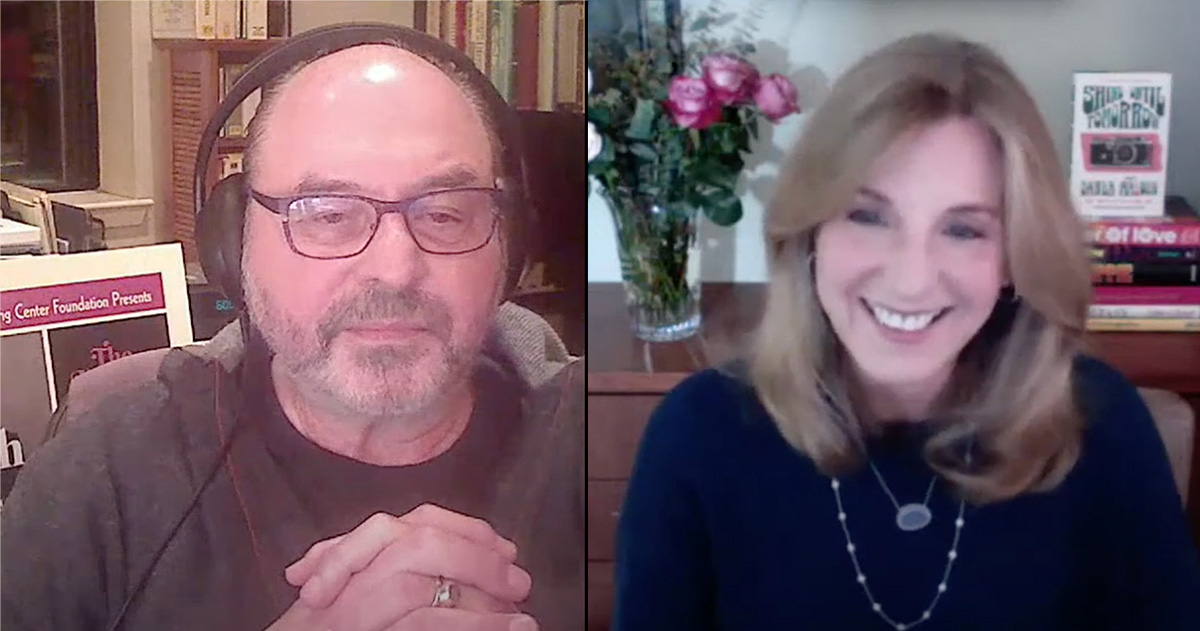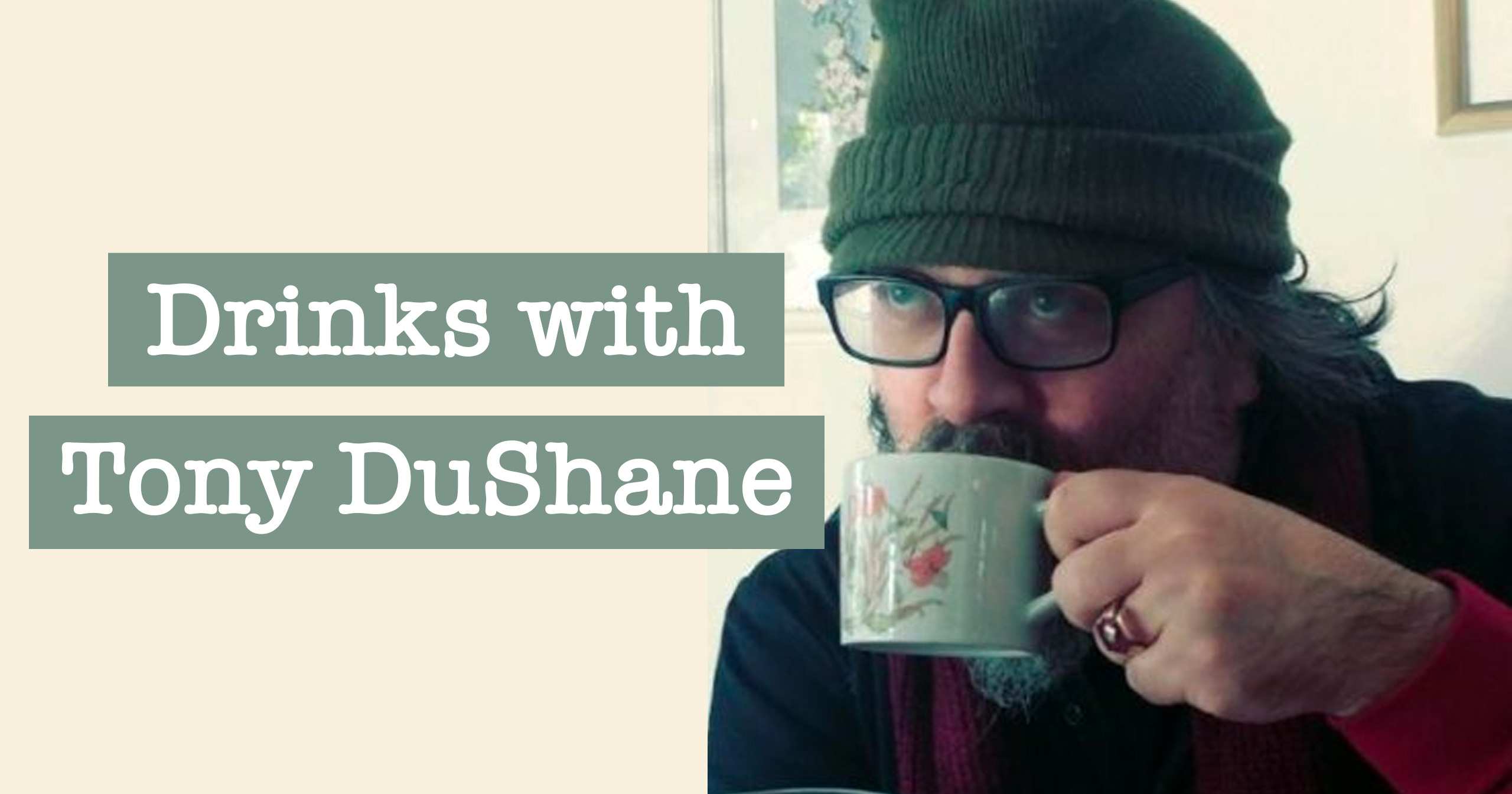In Conversation with Carla Malden
Questions about You:
What initially sparked your interest in writing and storytelling?
I’ve always loved make-believe. Who knows…maybe my love of storytelling was cultivated by elaborate Barbie doll dramas. Even when I was a child, I was instinctively aware that story-telling allowed you to bring order to the chaos of real life. As I got older, I discovered the joy of shaping a story so that every detail means something and contributes to that order. Basically, art offers an alternative to life while also illuminating the human condition. And I was always fascinated by words and their inherent power.
Growing up in Los Angeles, California, do you believe that it has influenced your journey as a writer, and if so how?
Wherever you grow up must influence your development both as a human being and in whatever occupation you choose. I suppose in some ways Los Angeles is unique because it’s a city built on dreams: people’s quest to make their dreams come true as well as the dream-making that is the currency of the movie business considered the heart of this town. So… yes, growing up in Los Angeles inevitably had an effect. Since my father was involved in the film industry, many of our close family friends were also in that business — people who, by nature, were not only gifted artists, but wonderful storytellers. Without anyone ever articulating it, I’d say I was brought up in an atmosphere in which the arts had a certain nobility of purpose.
Having been involved in the film industry, has this experience shaped your understanding of writing and storytelling?
My work in the production and development ends of the business taught me a great deal about shaping a script and how it can be difficult to predict what will translate well from page to screen. I also spent many years writing screenplays, and The Hollywood term “development hell” is a very real thing. It means selling a screenplay and then, often, watching it change hands from producer to producer or just languish, which can be an extremely frustrating, heartbreaking process. So I guess I learned you better enjoy the process of writing, because there are no guarantees for the finished product.
Before any of that, when I was a child, I used to cue my father (actor Karl Malden) when he was learning a part for a movie. He taught me, by example, more than anyone about what is necessary in storytelling and what is superfluous. I remember him often saying, “Cross that line out. I can act that.” I like to think I bring a bit of that lesson to my writing.
What has your journey as a writer been? How have you developed your skills and find your unique voice?
I started writing screenplays with my husband/writing partner. When asked who did what, our standard response was that he was more visual and I was more verbal. But over the years, I think we absorbed each other’s individual strengths. Now, when I’m working on a novel, I usually picture the scenes as though I were watching a movie.
When my father asked me to co-write his autobiography, I realized how much I enjoyed writing prose. That book, When Do I Start?, was the perfect introduction to non-screenwriting because I wrote it another voice — my father’s — but it was a voice I knew so well that it came effortlessly. My memoir, AfterImage, the story of the last year of my husband’s life and my first year without him, basically wrote itself. Weirdly, I have very little memory of working on that book, particularly the first draft. When I began writing fiction, I needed to develop the craft of really shaping a book. That’s the hard work – both torturous and wildly fulfilling.
I’ve not consciously sought to “find my voice,” though friends who have read my work frequently tell me they would know the book was written by me even if my name weren’t on the cover. I suspect it has to do with the turn of a phrase and sense of humor.
What themes or topics do you enjoy exploring in your writing? Why are they important to you?
I’m fascinated by how people’s pasts inform them – how, at any given moment, we are conglomerations of everything that has happened to us until then. I’m similarly fascinated by the stories we tell ourselves, often to make sense of how we feel in the moment. My first novel, Search Heartache, is very much about a woman becoming untethered because of a story she can’t let go of. I find these themes compelling because they shine a light on the fact that how we present ourselves is often at odds with what is roiling inside. I think they’re important themes because they encompass a path to empathy.
What is the most rewarding aspect of being an author? What motivates you to continue writing?
I believe you have to enjoy the process of being a writer. You can’t be focused on your audience when you’re writing. An awesome (in the literal sense of the word) aspect of the process is when a character takes over and says or does something unexpected and entirely unbidden, or when a phrase appears on screen as you type that you didn’t even know you’d thought of. That’s where the dopamine hit lies.
In terms of feedback, I’m thrilled when someone says back to you – sometimes verbatim – precisely what you were going for, either with a character or a scene or a theme. In the case of my memoir, AfterImage, I was deeply touched and gratified by the people who contacted me to say how much solace and help they found there.
What motivates me? That dopamine hit. And there’s no better escape than simultaneously leaving the world behind and playing with some imaginary friends.
What has been your biggest challenge throughout your writing career?
Getting out of my own way. Full stop.
What has been the most memorable experience that you have had as a writer?
Reaching “The End” is always a shock and a thrill.
Beyond that, one letter from a reader comes to mind. A prominent physician wrote to me when he read AfterImage to say that the book prompted in him a new understanding of what patients go through and how every word a doctor uses resonates. He said the book changed the way he was going to practice medicine.
Questions about My Two and Only:
Of all your novels, your newest one — My Two And Only — seems to hew the closest to your real-life experiences of losing your first husband, enduring widowhood, falling in love again, and then getting married. How did that affect your writing process on this novel? Did it make it easier or more difficult? How did you blend the personalities and characteristics of your husbands with the fictional characters representing them?
The broad-stroke “data points” of this novel mirror those of my own life. However, the similarity stops there. Even so, the protagonist’s arc is a journey I know personally, so I understood her emotional temperature at any given moment. I felt comfortable with her psychological maelstrom, even if the circumstances in which I placed her were entirely different from my own. That made it fairly easy in terms of feeling grounded within the story and underpinning it with emotional honesty, but no easier in terms of crafting the plot.
Neither husband in the book is either of my husbands, though – as is inevitable in fiction – there are elements of both in both. I would not say that the fictional characters “represent” my husbands. They have their own distinct personalities and serve this particular story in particular ways. They are entirely fictional creations, though I reiterate that, in my experience, fictional creations tend to end up as conglomerates to varying degrees. (My husband insists the second husband in the book is a fictional creation…except for when he’s being unusually charming.)
You explore your main character Charlotte’s memory of her first husband and their life together so beautifully in this book. As you’ve said before, you like to delve deep into the stories we tell ourselves. Real and imagined. Why is that so important to you? Is it part of the healing process or something more? What do you hope your readers will learn from these moments of profound recollection?
In some ways, MY TWO AND ONLY tells the story of a woman subconsciously struggling to get her arms around the story she is driven to tell herself. For the main character, Charlotte, the evolution of that story does indeed suggest healing, in so far as healing is a byproduct of confronting the past, reconciling survivor’s guilt (and other iterations of guilt), and permitting herself to enjoy a fuller, more well-rounded memory in order to participate in a fuller life.
I believe that the stories we tell ourselves hold enormous power. They affect the way in which we approach pain and joy and all the everyday interactions in between. Charlotte has imbued the story she tells herself – in this case, the memory of a particular day – with a power she doesn’t even recognize. She has imbued it with the power to define her life.
Primarily, I hope Charlotte’s evolving memory engages readers. If her story prompts them to consider their own memories of critical moments in their lives, that would be a bonus.
Your works of fiction (not to mention one of your memoirs) have one theme in common – they are about women (mature or younger) who suffer personal loss and grief and who must find a new path forward in their lives. Your writing on this subject is often brutally honest, psychologically insightful and flat-out funny. How do you strike a balance between tragedy and comedy in your stories? And how have you done that in your life?
I don’t set out to write a novel that straddles tragedy and comedy. I set out to write something honest – psychologically, behaviorally, and certainly emotionally. We live on the razor’s edge between tragedy and comedy every day, so when I’m trying to tell a story that I hope will resonate, those elements emerge naturally.
Often, when characters begin to take shape, they surprise me by saying or doing something I hadn’t necessarily planned. Those moments are often funny, occasionally far funnier than I realize in the moment. The tragedy takes care of itself; heartbreak offers itself up to be mined all too readily.
I haven’t choreographed the dance between tragedy and comedy in my own life. But I’ve learned enough to remember, on a good day, that when I find myself mired in the former, the latter is waiting out there somewhere.
Questions about Shine Until Tomorrow:
Can you share any personal inspirations or experiences that influenced the creation of Shine Until Tomorrow? Why were you drawn to the elements of nostalgia, time travel, and coming-of-age in this story?
I’m chronically interested in coming-of-age stories. They’re irresistible. You always want to write about a person changing in some profound way; that’s the arc of your story. Character change is built in with a coming-of-age story. I think of my adult novels as coming-of-age stories for “women of a certain age” (as the French like to put it!).
Oddly, I never thought of Shine as a time travel story first and foremost. I’m not a science fiction/fantasy person. Mari simply has to go back to the sixties to tell this particular story. She’s a girl obsessed with her future who has to visit the past in order to learn to live in the present. The sixties were the perfect era for her to visit: when we meet her, she’s a cynical, closed-off girl from 2007, while the sixties were a time of openness and optimism. The sixties embody all the lessons she needs to learn to be able to open her heart and fully participate in life.
As for personal inspirations: I transferred from a rather rigid all-girls school to a free-wheeling progressive, co-ed school for my senior year of high school. Mari’s story incorporates a lot of what I experienced writ large.
Throughout the story, Mari is seen obsessing about the future and dealing with her anxieties about the world. How did you approach depicting her internal struggles and her journey towards embracing the present?
The main way I tried to depict her internal struggles was through her use of language. She’s a hyper-smart girl with an over-sized vocabulary; she uses her facility with words to create a force field around her that enables her to avoid interacting with the world. Similarly, her “thing” is photography. She uses her ubiquitous camera to remain separate from the world; she is an observer, not a participant. These are self-defense mechanisms. The profound wound left by her parents’ divorce requires that she shield herself against not only being hurt, but also against the feelings that would allow her to be hurt.
The setting of San Francisco during the Summer of Loves provides a vibrant backdrop for the story? Why did you write about this particular time, and what did you focus on while capturing the atmosphere and spirit of that iconic time in history through your writing?
San Francisco. The Summer of Love. 1967. The images of that time and place are synonymous with peace and love…and music, which plays an integral part in the story. There is nothing more terrifying than freedom and love and idealism for a seventeen-year-old girl who relies on isolation and a sort of verbal superiority to get through her day. So, naturally, she needs to be plunked down smack in the middle of all that.
I steeped myself in books featuring photos of The Summer of Love. It was such a colorful time – psychedelically, no less. In several instances, I tried to recreate a particular image with words. Throughout, I tried to capture the tenor of the times, the underyling sense that anything is possible, that love – and music – can change the world. That sensibility offers such a stark contrast to the ethos of today, unfortunately.
Did you do any research or creative processes to authentically portray the Summer of Love era?
I researched a great deal. I read several books and, as I mentioned, looked at many books of photographs of that time. And I watched several documentaries. There was a lot of sixties music playing in my house while I was working on this book. (But then again, there usually is!)
Mari interacts with many new characters while stuck in the past. How did you form these secondary characters and their roles in Mari’s journey?
It’s a love story at its heart, so she had to fall in love. As is so often true in life, she has to fall in love with one person in order to be able to fall in love with the whole world. Given the setting, it felt like a given that her love interest would be a guy in a band. Hence, his bandmates, each of which (in my mind) represents a different aspect of the times. And she had to have a romantic rival. Enter Nina – a sort of Grace Slick character – tough-as-nails on the outside, capable of corralling the guys in the band, but possessing an unseen vulnerability. Vic, the old camera shop owner, is a fun character. Without giving anything away, let me just say that he surprised me with a revelation about himself I hadn’t initially considered.
I’d like to add that I also think of it very much as a love story between Mari and her mother as well. That relationship is a strong element of the spine of the story.
In what ways do you hope Shine Until Tomorrow resonates with readers, and what messages or takeaways would you like your readers to carry with them after reading the book?
I would like readers to feel like they’ve spent some time in 1967, the Summer of Love, and emerge feeling a little rosier about the possibilities for the world. I’d like them to commit or re-commit to the idea of striving to change the world, one heart at a time. I’d love for them to play some Jefferson Airplane and spend a few minutes dancing… like no one is watching.
What's New?
Salt Lake Dirt Podcast
Book Soup Presents
Award-winning novelist Joseph Di Prisco interviews Carla Malden about Shine Until Tomorrow and the pursuit of literary happiness.
What Exactly Are Memories?
Author / Host Tony Dushane draws Carla out on writing novels inspired by real life and the fine line between fiction and memoirs.



